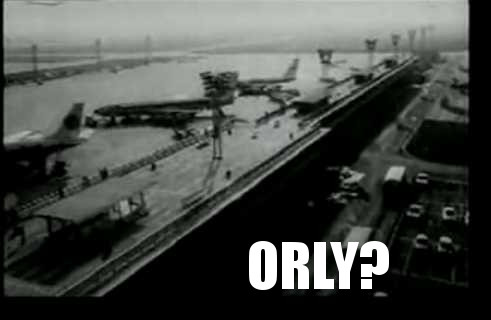The Martian is a movie (a book, too, but I haven’t read it) where Matt Damon’s character, Matt Watley, is stranded on Mars and has to figure out how to survive as people on Earth figure out how to rescue him. It is a version of Robinson Crusoe (without Friday). There are no enemies or bad people, just understandable mistakes and the capricious forces of “nature,” or as it’s called here, space. Watley declares himself officially the first colonist of Mars, and he solves every problem, as he explicitly says, with science.
To turn to more contemporary references, it seems to me that the film is a conflation of Gravity, Moon, and Apollo 13. Which is fine with me – I’m all about movies that mash up, reference, and reinvent other movies. Film A = film B + film C + film D can be a nice equation. Romeo and Juliet with modern street gangs, or with modern street gangs and fast cutting, or with zombies. But in any case film A needs to do something innovative by combining elements from these other movies, or, at the very least, it needs to do the same things that B and C and D did, but better.
From one perspective The Martian, Gravity, Moon, and Apollo 13 are all basically escape-the-room puzzles, just with larger and smaller rooms and solved on-screen for you. They are all narratives about problem-solving and the virtues of being clever. Now, sometimes there are problems that can be solved by science and engineering, just as sometimes there are problems that can be solved without science and engineering. You bump into someone on the street; you say “sorry,” acknowledging them and your mistake and keeping society from deteriorating a tiny bit. Didn’t really need science there – even social science. But most major, significant problems involve both to some extent.
The Martian, however, is a parody of problem solving. By glorifying its brand of problem solving as something quintessentially American (but with global appeal), it suggests that we should narrow our understanding of how to think when things get difficult. There are plenty of things one can pick at in the film, but its model of problem solving is why I hate it.
First, The Martian presents its big, complex problem – one that engages the interest of mass audiences across the Earth, in different cities – as a “pure science” problem. I will do science to it, and it will be solved. Although international relations and tensions, along with congressional funding for the space program, are all a very explicit part of the film, they are rapidly glossed over when it comes to problem solving, so that a purely engineering approach is all that is needed to triumph. Being a Martian colonist and being a pirate in “international waters” are invoked as time-filling jokes by the protagonist, but there’s no hint that colonialism and international relations might be real issues – in the latter case, even within the film’s fictional world. There are no international issues, though. Those in the Chinese space program just shrug and say that of course they’ll help out, since they’re scientists. Any political or cultural difficulties that might arise are left unmentioned. Even Gravity involved one astronaut sacrificing himself for another instead of solving an engineering problem to cheat death. That film also presented the cultural (rather than purely technical) challenge of entering a space station where the controls were all in another language. In Moon, an unethical corporation was central to the situation. In The Martian there’s none of this complexity. Solving problems is just about making the right calculations.
Second, problem solving in The Martian is always a solo flight. In the case of Mark Watley, left alone and initially without communication capability on Mars, of course he’s going to start off solving problems alone, and it makes sense to showcase his individualistic ability to survive and prevail. But while collaborative problem solving was central Apollo 13 (based, remember, on real life), the people back home on Earth, even though they have the ability to work with one another to solve problems, never do. We just hear a snarky remark about how they tell him to drill through the roof of the rover and jump on it until it breaks open. Consider the socially inept mega-genius Rich Purnell, the JPL scientist whose insight is critical to NASA’s rescue attempt. Purnell communes only with the supercomputer as he figures out his ingenious plan. He uses other people only to represent Earth and Mars as he produces one of the film’s many exciting astrodynamical visualizations using everyday objects. Purnell even stops himself from talking to anyone else about his idea several times. There’s approximately one case of someone saying “that gives me an idea!” in response to something someone else said, and no instances in which people are shown working out problems together. Please. Moon essentially has only one character and even that movie has people working together to solve problems.
Sure, this Robinson Crusoe in space; I don’t expect the main character to be dealing with international relations, thinking as a team, or doing much more, for his part, than being an individual scientist. But the film has a lot of other characters, and none of them solve problems except by doing science to them, without reference to society, culture, politics, or language. None of them think about problems together.
Consider just the most “scientific” sorts of problems that are important to us today (such as climate change, water quality, disease from AIDS through cholera and ebola) without even getting into such important issues as war in the Middle East, mass and police killings, and the drug war. I submit that to make progress on these problems, and certainly the other ones, it is essential to consider social and cultural issues, and it is also essential for people to work together. For instance, a scientist decades ago can develop a drug that today helps those who have AIDS, then the company that produces it can raise the price 5000%. This is not a problem to which science can simply be done. Of course, engineering is in many cases essential to better water quality, but the civic and social contexts are important as well.
The Martian really didn’t have to insist that reductionism and solitary thought are the only ways to solve problems, even with its focus. If you’re looking for an escape-the-room movie, allow me to suggest Gravity, Moon, or Apollo 13.





